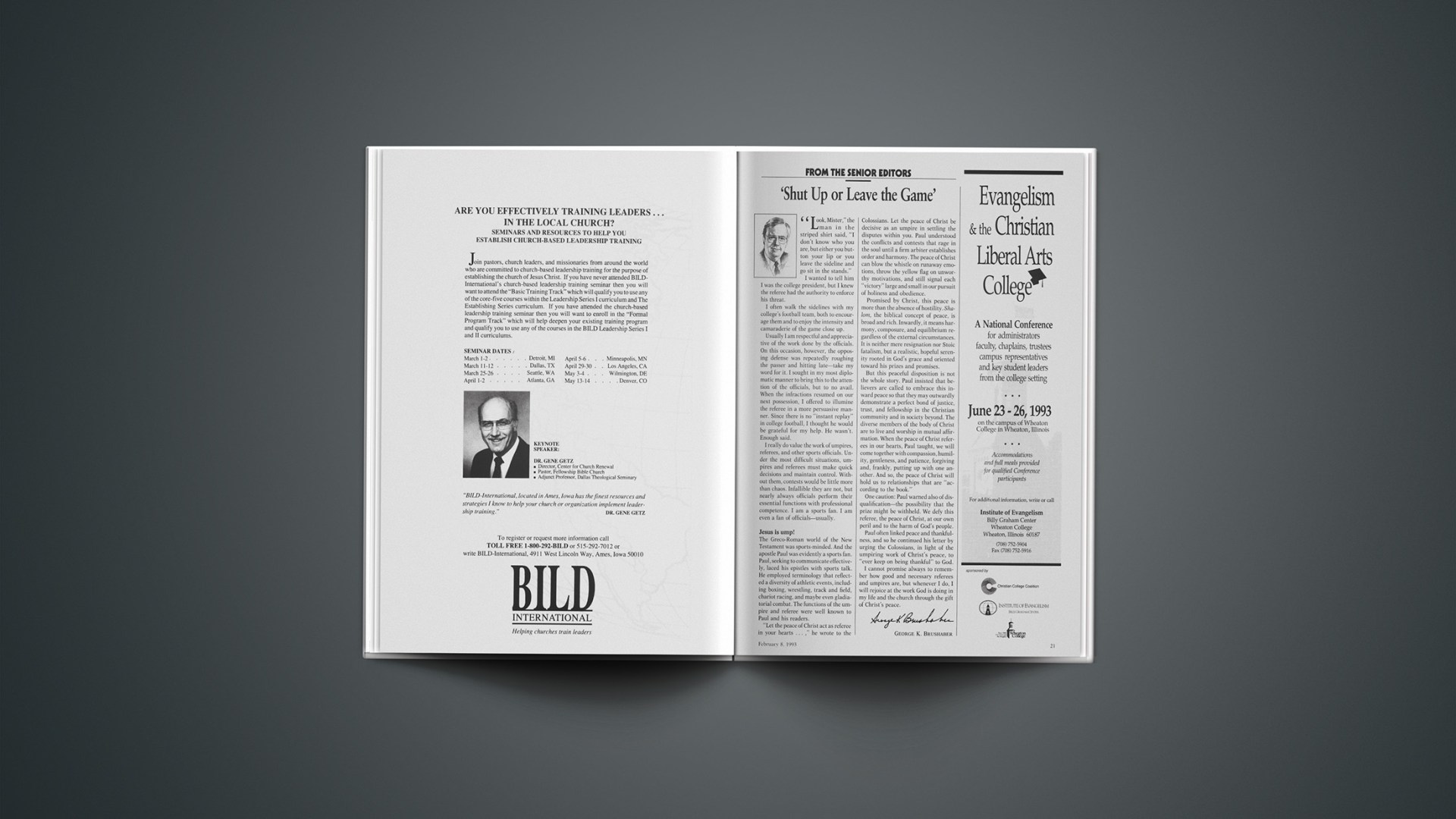“Look, Mister,” the man in the striped shirt said, “I don’t know who you are, but either you button your lip or you leave the sideline and go sit in the stands.”
I wanted to tell him I was the college president, but I knew the referee had the authority to enforce his threat.
I often walk the sidelines with my college’s football team, both to encourage them and to enjoy the intensity and camaraderie of the game close up.
Usually I am respectful and appreciative of the work done by the officials. On this occasion, however, the opposing defense was repeatedly roughing the passer and hitting late—take my word for it. I sought in my most diplomatic manner to bring this to the attention of the officials, but to no avail. When the infractions resumed on our next possession, I offered to illumine the referee in a more persuasive manner. Since there is no “instant replay” in college football, I thought he would be grateful for my help. He wasn’t. Enough said.
I really do value the work of umpires, referees, and other sports officials. Under the most difficult situations, umpires and referees must make quick decisions and maintain control. Without them, contests would be little more than chaos. Infallible they are not, but nearly always officials perform their essential functions with professional competence. I am a sports fan. I am even a fan of officials—usually.
Jesus is ump!
The Greco-Roman world of the New Testament was sports-minded. And the apostle Paul was evidently a sports fan. Paul, seeking to communicate effectively, laced his epistles with sports talk. He employed terminology that reflected a diversity of athletic events, including boxing, wrestling, track and field, chariot racing, and maybe even gladiatorial combat. The functions of the umpire and referee were well known to Paul and his readers.
“Let the peace of Christ act as referee in your hearts …,” he wrote to the Colossians. Let the peace of Christ be decisive as an umpire in settling the disputes within you. Paul understood the conflicts and contests that rage in the soul until a firm arbiter establishes order and harmony. The peace of Christ can blow the whistle on runaway emotions, throw the yellow flag on unworthy motivations, and still signal each “victory” large and small in our pursuit of holiness and obedience.
Promised by Christ, this peace is more than the absence of hostility. Shalom, the biblical concept of peace, is broad and rich. Inwardly, it means harmony, composure, and equilibrium regardless of the external circumstances. It is neither mere resignation nor Stoic fatalism, but a realistic, hopeful serenity rooted in God’s grace and oriented toward his prizes and promises.
But this peaceful disposition is not the whole story. Paul insisted that believers are called to embrace this inward peace so that they may outwardly demonstrate a perfect bond of justice, trust, and fellowship in the Christian community and in society beyond. The diverse members of the body of Christ are to live and worship in mutual affirmation. When the peace of Christ referees in our hearts, Paul taught, we will come together with compassion, humility, gentleness, and patience, forgiving and, frankly, putting up with one another. And so, the peace of Christ will hold us to relationships that are “according to the book.”
One caution: Paul warned also of disqualification—the possibility that the prize might be withheld. We defy this referee, the peace of Christ, at our own peril and to the harm of God’s people.
Paul often linked peace and thankfulness, and so he continued his letter by urging the Colossians, in light of the umpiring work of Christ’s peace, to “ever keep on being thankful” to God.
I cannot promise always to remember how good and necessary referees and umpires are, but whenever I do, I will rejoice at the work God is doing in my life and the church through the gift of Christ’s peace.
GEORGE K. BRUSHABER










